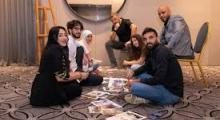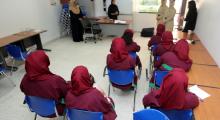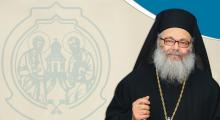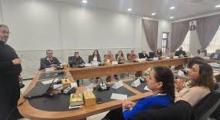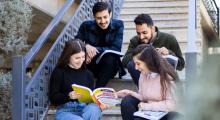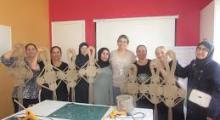Issued by the Catholic Center for Studies and Media - Jordan. Editor-in-chief Fr. Rif'at Bader - موقع أبونا abouna.org
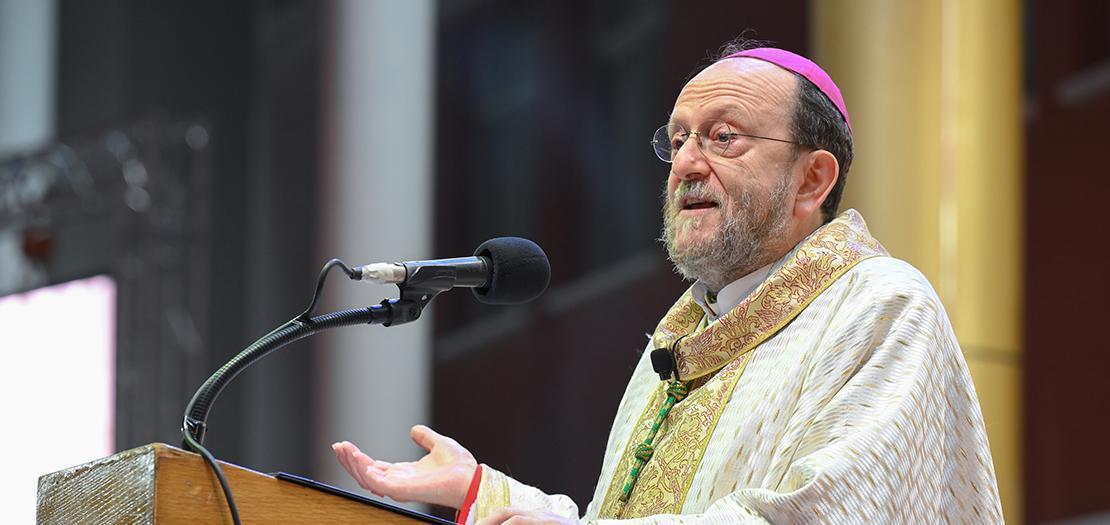
Following is the full text of Bishop Paolo Martinelli's speech at the conference "Convening of Champions. Ethics Education to Contribute to Global Citizenship and Build Inclusive and Peaceful Societies". The meeting, organized by UNESCO, the Council of Muslim Elders, the Committee for Human Fraternity and other organizations, took place in Abu Dhabi from 23 to 25 April:
Recently, the Secretary of State of the Holy See, Cardinal Pietro Parolin, said that the act of education is always an act of hope. Investing in the education of the new generations means investing in the future. All parents want to give their children not only food and a roof over their heads, but above all the ultimate meaning of life, the ethical and spiritual values that can guide their future and make them true citizens, capable of facing the future with courage and serenity. In this perspective, the religious dimension is an absolutely essential part of the educational experience. Religion, in fact, penetrates the heart of the anthropological experience, since it concerns the relationship of each person with God, to collaborate with all people of good will for a more human and fraternal society.
The notion of interreligious education introduces a new concept that is growing in the consciousness of peoples and religions. In this context, it is important to point out the Document on Human Fraternity signed here in Abu Dhabi by Pope Francis and the Grand Imam of Al-Azhar, His Eminence Dr. Ahmad Al-Tayeb. This document undoubtedly represents a new chapter in the history of interreligious relations and is a valuable tool for interreligious education.
In the deepest respect for diversity, religions are called to a common path where believers of different faiths learn to know and respect each other and jointly promote ethical and spiritual values for the good of humanity.
Interreligious education implies, first of all, the recognition that every person is a religious being, created to relate to God and others in search of the common good. An authentic educational experience must develop the religious sentiment, that is, the constitutive reference to the transcendent, almighty, merciful and creative God who wants all believers to treat each other as brothers and sisters. The public schools managed by the Apostolic Vicariate in the United Arab Emirates are intended to be a modest contribution to this interreligious education, which educates the new generations to cooperation and solidarity among all people. Religions have the common task of reminding humanity of the need to take care of the religious and ethical dimension of life. Without God, man becomes inhuman. The Abu Dhabi Document affirms: "The firm conviction that the true teachings of religions invite us to remain anchored in the values of peace, to uphold the values of mutual knowledge, human fraternity and universal coexistence; that they work to restore wisdom, justice and charity and to reawaken the sense of religiosity among young people, in order to protect the new generations from the dominance of materialistic ideas, from the danger of political practices based on greed for excessive gain and from indifference, all of which are based on the law of force and not on the force of law."
If every authentic educational experience is an act of hope and a way forward, interreligious education offers an even greater hope for all of humanity: the possibility of creating a more fraternal and humane society, where tolerance, coexistence, solidarity and social friendship reign. The new generations call on adults to be witnesses that a world of peace is possible. We renew our commitment to support the hope of the new generations. May Almighty God bless our efforts to promote interreligious education for a more fraternal world.


